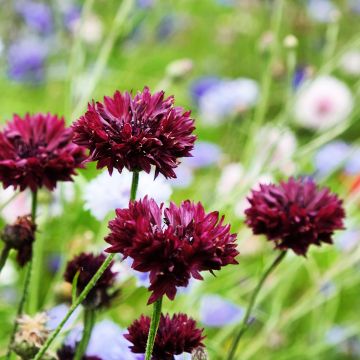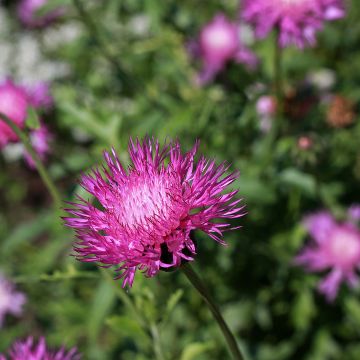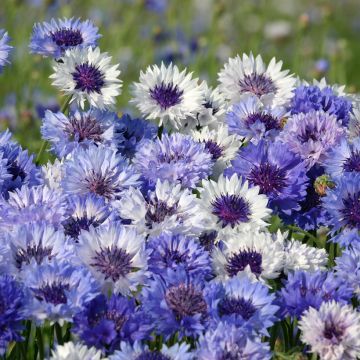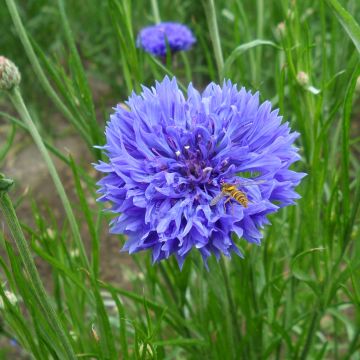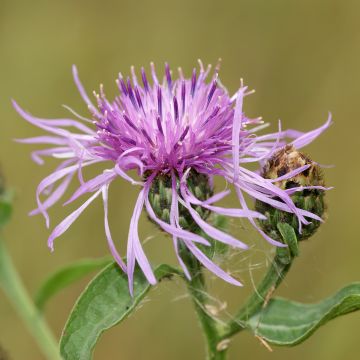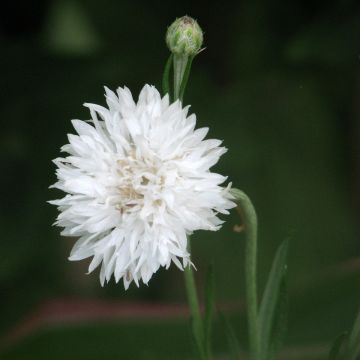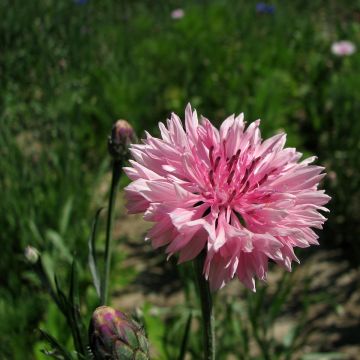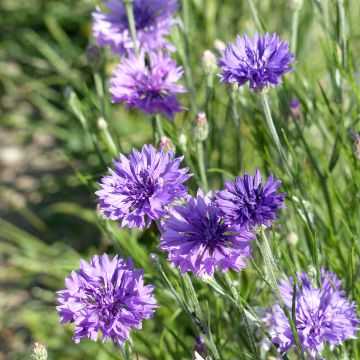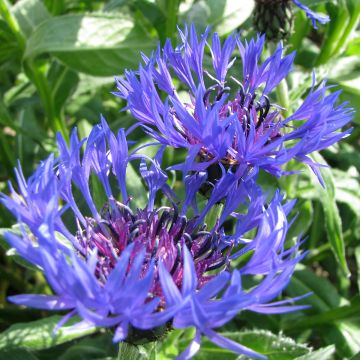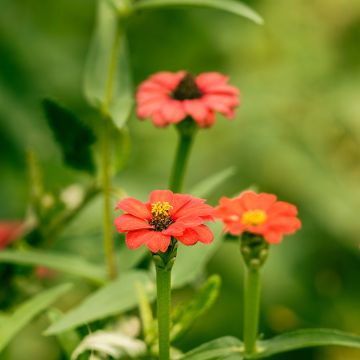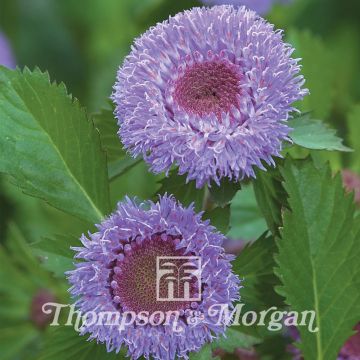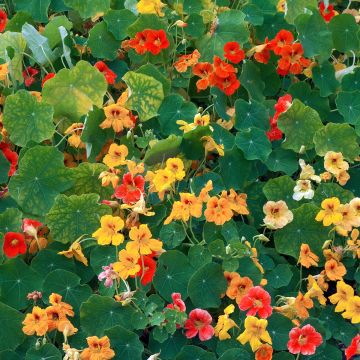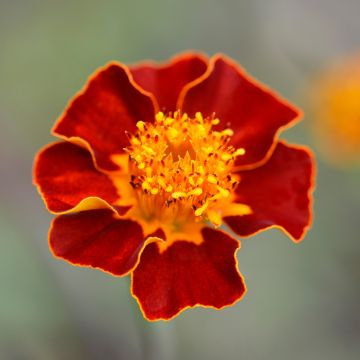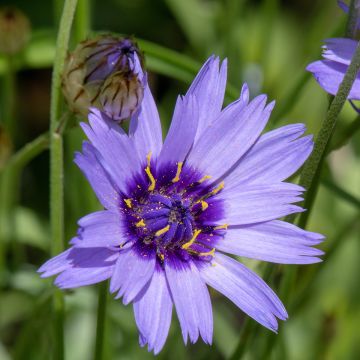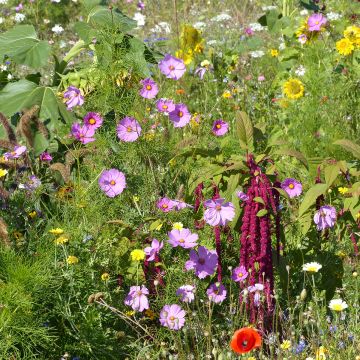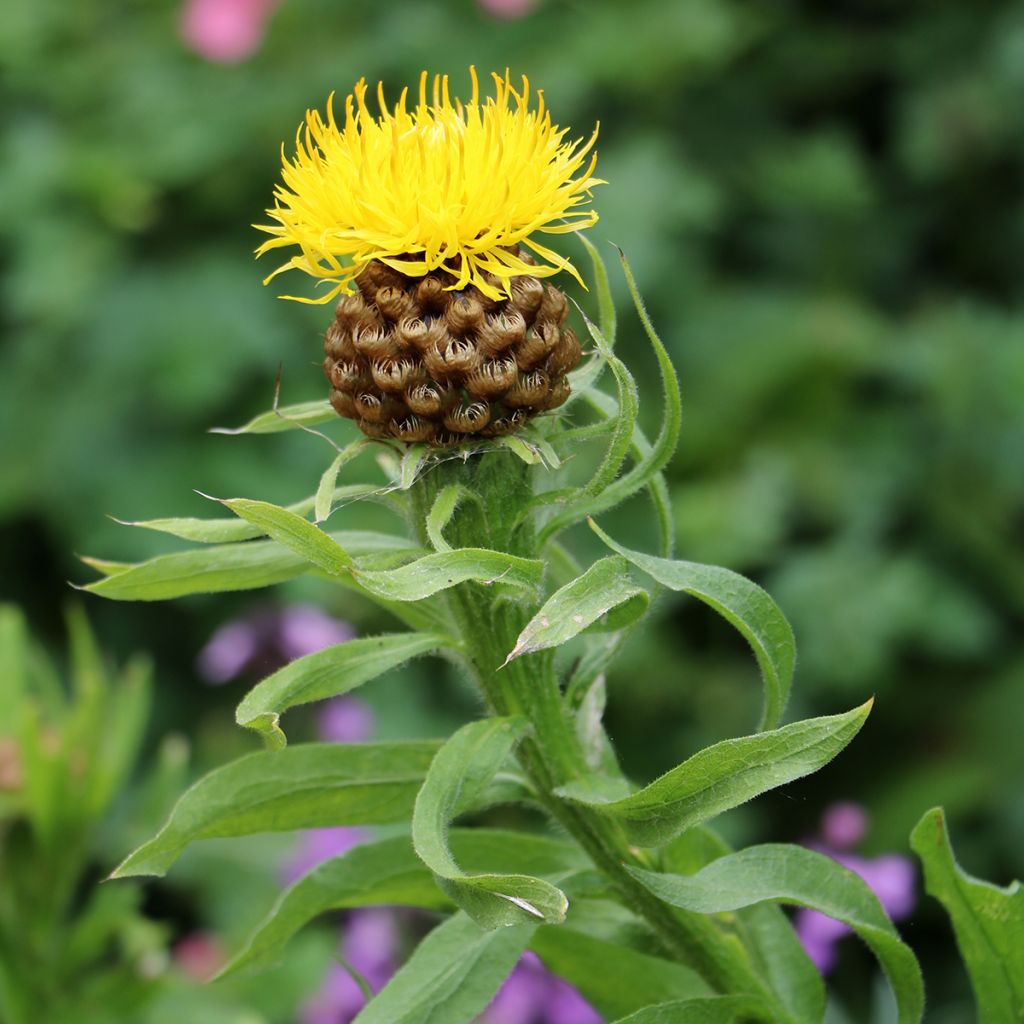

Centaurea macrocephala - seeds
Centaurea macrocephala - seeds
Centaurea macrocephala Jaune
giant knapweed
Special offer!
Receive a €20 voucher for any order over €90 (excluding delivery costs, credit notes, and plastic-free options)!
1- Add your favorite plants to your cart.
2- Once you have reached €90, confirm your order (you can even choose the delivery date!).
3- As soon as your order is shipped, you will receive an email containing your voucher code, valid for 3 months (90 days).
Your voucher is unique and can only be used once, for any order with a minimum value of €20, excluding delivery costs.
Can be combined with other current offers, non-divisible and non-refundable.
Home or relay delivery (depending on size and destination)
Schedule delivery date,
and select date in basket
This plant carries a 6 months recovery warranty
More information
We guarantee the quality of our plants for a full growing cycle, and will replace at our expense any plant that fails to recover under normal climatic and planting conditions.
Would this plant suit my garden?
Set up your Plantfit profile →
Description
Centaurea macrocephala, or Giant Knapweed, is a robust perennial plant that is found in the Caucasus, Siberia, and the Mediterranean basin, mainly on limestone soils. It quickly forms a large clump of sturdy upright stems and is adorned in summer with large golden yellow, fluffy flower heads, loved by bees, golden chafer beetles, and butterflies. It is stunning at the back of naturalistic-style borders and a good flower for cutting.
Centaurea macrocephala (synonym Grossheimia macrocephala) is a perennial herbaceous plant of the aster family, just like cornflower and thistles. This large and beautiful wild species is native to subalpine fields in Armenia and neighbouring regions of Turkey. Depending on the soil fertility, this centaurea can reach up to 1.20 m high, with a width of 80 cm. Its growth is rapid, and the plant is capable of flowering in the second year. It has a taproot that first forms a basal rosette of large leaves. Then, it develops strong, thick, hairy stems. These stems bear numerous sessile (without petiole), oblong and wavy leaves with fine hairs, entire or coarsely lobed and bright green. The leaves at the top of the stems have a fine terminal spine. Flowering takes place in July-August and lasts about a month. At the end of the stems, solitary flower heads measuring 9 cm in diameter appear. Each head is composed of numerous finely tubular ligulate, very bright yellow flowers. The large flower buds are covered with brown scales, often split in the middle, and have fairly long whitish cilia. This flowering is very nectar-rich. After pollination, fruits are formed. These are achenes that will be dispersed by the wind, allowing the plant to self-seed in the surrounding area. The deciduous foliage is absent in winter.
Centaurea macrocephala, with its resemblance to a giant dandelion, is best at the back of sunny borders. Undemanding and frugal in water, it will accompany large blue thistles like Onopordum nervosum, Cynara cardunculus, Eryngium giganteum in mediocre, even rocky and fairly dry soils. It can be associated with other tall, slightly wild plants like Verbascum olympicum, Ferula communis... for a picturesque effect, or in a large rockery. Its flowers hold up well in a vase and can be used in dried or fresh compositions.
Report an error about the product description
Flowering
Foliage
Plant habit
Botanical data
Centaurea
macrocephala
Jaune
Asteraceae
giant knapweed
Grossheimia macrocephala
Caucasus
Other Centaurea seeds
View all →Planting and care
Sow the seeds of Centaurea macrocephala in spring in seed compost maintained at 20°C. Transplant the young seedlings into pots when they reach 2 to 3 centimetres high, without disturbing the root. It is possible to sow directly in place on well-prepared and weeded soil from April 15th, after the last frost, depending on the region. Keep a spacing of 80 cm between each plant.
The large-headed centaury is grown in the sun. This species prefers moist to dry soils with a tendency towards limestone. Clayey and humid, poorly drained soils, are not suitable and acidic soils should be avoided. Once well rooted, it requires no watering or maintenance. It can self-seed spontaneously if the conditions are suitable. Staking is unnecessary. Prune the dry floral stems in early or late winter. This plant self-seeds in light soil.
Sowing period
Intended location
This item has not been reviewed yet - be the first to leave a review about it.
Similar products
Haven't found what you were looking for?
Hardiness is the lowest winter temperature a plant can endure without suffering serious damage or even dying. However, hardiness is affected by location (a sheltered area, such as a patio), protection (winter cover) and soil type (hardiness is improved by well-drained soil).

Photo Sharing Terms & Conditions
In order to encourage gardeners to interact and share their experiences, Promesse de fleurs offers various media enabling content to be uploaded onto its Site - in particular via the ‘Photo sharing’ module.
The User agrees to refrain from:
- Posting any content that is illegal, prejudicial, insulting, racist, inciteful to hatred, revisionist, contrary to public decency, that infringes on privacy or on the privacy rights of third parties, in particular the publicity rights of persons and goods, intellectual property rights, or the right to privacy.
- Submitting content on behalf of a third party;
- Impersonate the identity of a third party and/or publish any personal information about a third party;
In general, the User undertakes to refrain from any unethical behaviour.
All Content (in particular text, comments, files, images, photos, videos, creative works, etc.), which may be subject to property or intellectual property rights, image or other private rights, shall remain the property of the User, subject to the limited rights granted by the terms of the licence granted by Promesse de fleurs as stated below. Users are at liberty to publish or not to publish such Content on the Site, notably via the ‘Photo Sharing’ facility, and accept that this Content shall be made public and freely accessible, notably on the Internet.
Users further acknowledge, undertake to have ,and guarantee that they hold all necessary rights and permissions to publish such material on the Site, in particular with regard to the legislation in force pertaining to any privacy, property, intellectual property, image, or contractual rights, or rights of any other nature. By publishing such Content on the Site, Users acknowledge accepting full liability as publishers of the Content within the meaning of the law, and grant Promesse de fleurs, free of charge, an inclusive, worldwide licence for the said Content for the entire duration of its publication, including all reproduction, representation, up/downloading, displaying, performing, transmission, and storage rights.
Users also grant permission for their name to be linked to the Content and accept that this link may not always be made available.
By engaging in posting material, Users consent to their Content becoming automatically accessible on the Internet, in particular on other sites and/or blogs and/or web pages of the Promesse de fleurs site, including in particular social pages and the Promesse de fleurs catalogue.
Users may secure the removal of entrusted content free of charge by issuing a simple request via our contact form.
The flowering period indicated on our website applies to countries and regions located in USDA zone 8 (France, the United Kingdom, Ireland, the Netherlands, etc.)
It will vary according to where you live:
- In zones 9 to 10 (Italy, Spain, Greece, etc.), flowering will occur about 2 to 4 weeks earlier.
- In zones 6 to 7 (Germany, Poland, Slovenia, and lower mountainous regions), flowering will be delayed by 2 to 3 weeks.
- In zone 5 (Central Europe, Scandinavia), blooming will be delayed by 3 to 5 weeks.
In temperate climates, pruning of spring-flowering shrubs (forsythia, spireas, etc.) should be done just after flowering.
Pruning of summer-flowering shrubs (Indian Lilac, Perovskia, etc.) can be done in winter or spring.
In cold regions as well as with frost-sensitive plants, avoid pruning too early when severe frosts may still occur.
The planting period indicated on our website applies to countries and regions located in USDA zone 8 (France, United Kingdom, Ireland, Netherlands).
It will vary according to where you live:
- In Mediterranean zones (Marseille, Madrid, Milan, etc.), autumn and winter are the best planting periods.
- In continental zones (Strasbourg, Munich, Vienna, etc.), delay planting by 2 to 3 weeks in spring and bring it forward by 2 to 4 weeks in autumn.
- In mountainous regions (the Alps, Pyrenees, Carpathians, etc.), it is best to plant in late spring (May-June) or late summer (August-September).
The harvesting period indicated on our website applies to countries and regions in USDA zone 8 (France, England, Ireland, the Netherlands).
In colder areas (Scandinavia, Poland, Austria...) fruit and vegetable harvests are likely to be delayed by 3-4 weeks.
In warmer areas (Italy, Spain, Greece, etc.), harvesting will probably take place earlier, depending on weather conditions.
The sowing periods indicated on our website apply to countries and regions within USDA Zone 8 (France, UK, Ireland, Netherlands).
In colder areas (Scandinavia, Poland, Austria...), delay any outdoor sowing by 3-4 weeks, or sow under glass.
In warmer climes (Italy, Spain, Greece, etc.), bring outdoor sowing forward by a few weeks.































